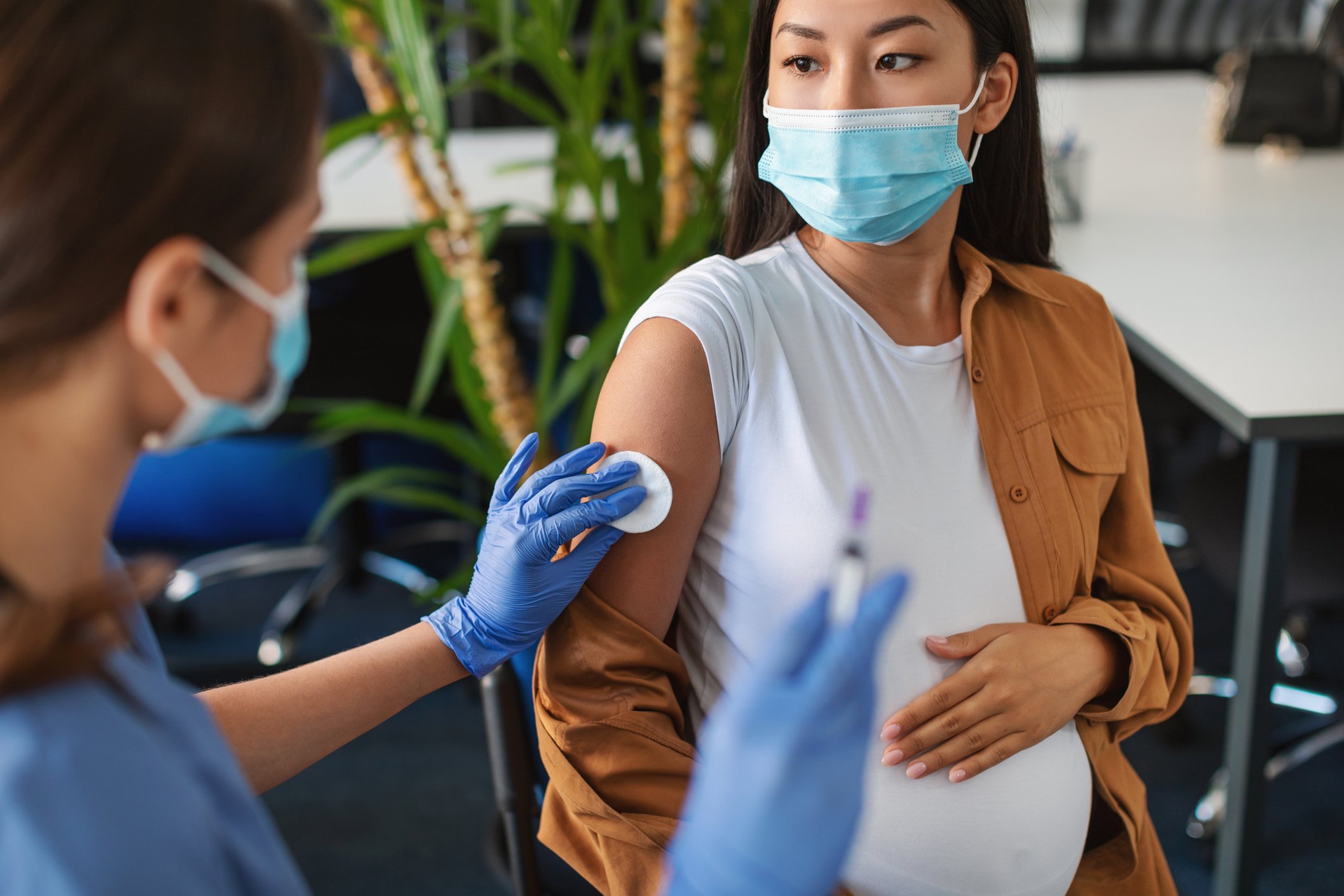
Flu Vaccine
More than 80% of pregnancies overlap with flu season. Each year, thousands of pregnant women are hospitalized due to flu complications. Getting the flu vaccine during pregnancy is the best way to protect yourself from severe illness and complications from the flu. It can also help protect your baby from the flu after birth.
-
Influenza, or “the flu,” is caused by a virus that infects the respiratory system. Flu symptoms are usually more severe and last longer than those of a common cold. They include coughing, headache, fever, muscle aches, and fatigue.
Pregnancy causes changes in the immune system, lungs, and heart that make pregnant women more likely to develop severe illness from the flu. Getting the flu while pregnant can lead to serious illness, like pneumonia, and cause pregnancy problems such as preterm birth.
The flu vaccine is the best way to protect against the flu. Studies have shown that getting the flu vaccine reduces the risk of getting a flu-related respiratory illness by up to one-half and the risk of being hospitalized by an average of 40%.
Getting the flu vaccine during pregnancy also protects babies after they are born. The vaccine works with the body’s immune system to make antibodies against the flu virus. These antibodies are passed to the fetus through the placenta. Babies of vaccinated moms are born protected from the flu, keeping them safe from severe illness until they can get vaccinated at age 6 months.
-
The flu vaccine has a long track record of safety during pregnancy. Millions of pregnant women in recent decades have been vaccinated without major complications. Studies show no link between getting the flu vaccine before or during pregnancy and an increased risk of birth defects. The flu vaccine has not been found to cause miscarriage or preterm labor.
-
Pregnant women in their third trimester can get the flu vaccine in July or August for the best opportunity to protect their babies after birth during the flu season. September and October are generally good times for all other pregnant women to get vaccinated.
The flu vaccine lasts for 1 year. The flu virus changes rapidly, so the vaccine is updated yearly to match the most common flu strains in circulation.
A nasal spray vaccine is available to the general public, however it is not recommended for pregnant women, because it contains a live, weakened flu virus. Live vaccines are no recommended in pregnancy. Pregnant women should get the inactivated flu shot.
-
If you’re pregnant or have had a baby within the past 2 weeks, see your healthcare professional right away to get antiviral medication (Tamiflu), regardless of whether you have had the flu vaccine. If you’ve been exposed to someone with the flu, your healthcare professional may advise that you take antiviral medication as well. Available information indicates that antiviral medication does not increase the risk of birth defects.
Antiviral medication helps reduce the severity of flu symptoms and shortens the course of the illness. It works best if given within 48 hours of the onset of symptoms, but it can be given at any time after symptoms appear.
-
Taking precautions like washing hands frequently, covering the mouth and nose when coughing or sneezing, and avoiding close contact with people who are sick are helpful. But getting vaccinated is the first and best way to protect yourself from the flu.
Quick Facts
Pregnant women are at higher risk of complications from the flu than women who are not pregnant.
The best protection against the flu is to get the flu vaccine. Data from millions of women obtained over many years show that the flu vaccine is safe during pregnancy.
The flu vaccine does not cause the flu. The slight sickness that some people feel after getting a flu vaccine is caused by the immune system’s response to the vaccine.
Babies of pregnant women who get the flue vaccine during pregnancy receive antibodies against the flu, which helps protect them against severe illness until they can get vaccinated at age 6 months.
While the flu vaccine is the best protection against the flu, additional precautions include washing hands frequently, covering the mouth and nose when coughing or sneezing, and avoiding close contact with people who are sick.
CDC: Flu & Pregnancy
CDC: How Influenza (Flu) Vaccines Are Made
MotherToBaby: Seasonal Influenza Vaccine (Flu Shot)
Glossary
Antibodies: Proteins made by the immune system in response to a foreign substance, such as a virus.
Immune system: The cells and organs that protect the body against foreign substances, such as bacteria and viruses.
Placenta: A special organ that develops during pregnancy. It allows the transfer of nutrients, antibodies, and oxygen to the fetus. It also makes hormones that sustain the pregnancy.
This resource was supported by the Society for Maternal-Fetal Medicine (SMFM) and the Centers for Disease Control and Prevention (CDC) cooperative agreement CDC-RFA-DD-23-0004 Enhancing Partnerships to Address Birth Defects, Infant Disorders and Related Conditions, and the Health of Pregnant and Postpartum People. The views expressed by the authors do not necessarily reflect the official policies of the Department of Health and Human Services nor represent an endorsement by the U.S. Government.
Last Updated: August 2025
